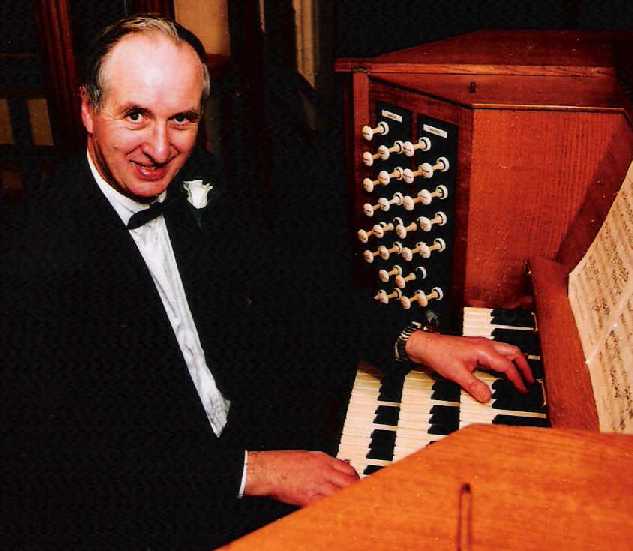When in 1977, I became organist of All Saints’ Church, Eastbourne, Donald was already in post as the Assistant (a wholly inappropriate title for one who was to become my father and grandfather in music). In 1985, I was privileged to play for a packed church at his funeral after almost nine glorious years of learning and fellowship. The congregation left the church to the magnificent strains of his Rhapsody “Caledonia”, after a service at which all the music played had been composed by him.
Quiet and self-effacing, Donald was a godly gentleman with a quite extraordinary musical gifting, remembered with great affection by those who had the privilege to know or be taught by him. Brought up surrounded by art and music, he had a remarkable command of beauty and an ease of expression in music (whether composing or playing) that issued in new ideas and harmonies, always delightfully original and yet accessible alike to the scholar and the musically unsophisticated. He moved with ease through the remotest of keys as though it were the most natural journey, and could transform the simplest of melodies into a work of sublime beauty. His music, like his personality, was never self-seeking, and whilst he had a formidable keyboard technique, he could express himself using the simplest of ideas.
A serious speech impediment that had afflicted him since childhood rendered normal conversation inaccessible, although it was noteworthy that his speech was facilitated if seated at the keyboard. The piano or organ provided in any case a means of expression whereby words became far less important. And so it was that one dark evening after choir practice we walked together into the church having been rehearsing the hymn “Jesus, priceless treasure” to the old German chorale Jesu, meine Freude. I opened the organ console and began to play the chorale. Donald would often stand and indicate instructive nuances accompanied by the briefest of comments perhaps affirming a re-harmonisation (“…Ah! yes… F… n…natural”). On this occasion, he disappeared into the darkened church and had evidently opened the grand piano, for the next that I heard was a 2-verse piano part of breathtaking beauty combined contrapuntally with the organ’s chorale. Overwhelmed, I asked Donald if he would write down for me what he had played. It remains one of my most precious manuscripts. And little by little it began to emerge – from 1917-1922, he had been a composition pupil of the great composer Charles Villiers Stanford (Charlie, as he called him) at the RCM. And as little offerings of pieces previously composed for the organ began to appear, it transpired that he had written throughout most of his life, punctuated by occasional periods of compositional silence.
The rich tapestry of seasons throughout the church’s year provided many occasions when a new piece could enrich our worship and underline the scripture readings for the day, and so it was that our own resident composer would produce an organ and piano duet, a hymn-tune, an anthem, a canticle setting, or even an organ solo. And frequently there would be the need to re-work the harmonization of a tune for which the undiscerning publisher had allowed his contributor to stop work too soon. Each of these would become an object-lesson in Christian musicianship in its rightful place – showing undistracting excellence in which the craftsman at the height of his powers was the servant and not the self-seeking master. Very often, a new piece would simply be a quiet organ prelude that would easily pass unrecognised other than as the unobtrusive background for those gathering to worship. But always it would be beautifully crafted and a delight for those with ears to hear.
Above all, Donald’s Christian faith was the centre of his life. Call at his hotel, and you would like as not find him reading “Daily Light” (in English, or in his soft-cover German edition, “Licht für den Tag”). Dare to engage him in a discussion on the vexed question of conflicting styles of church music and – if you waited to listen for his reply – you would eventually be told: “What we need is an outpouring of God’s Holy Spirit. Nothing else, and nothing less.”
David Woodward
